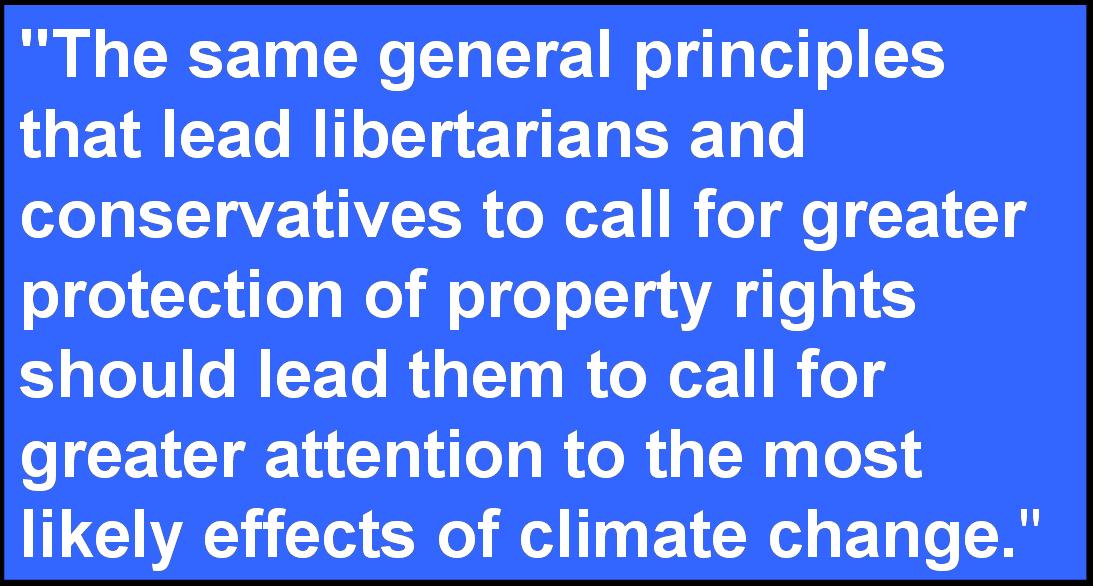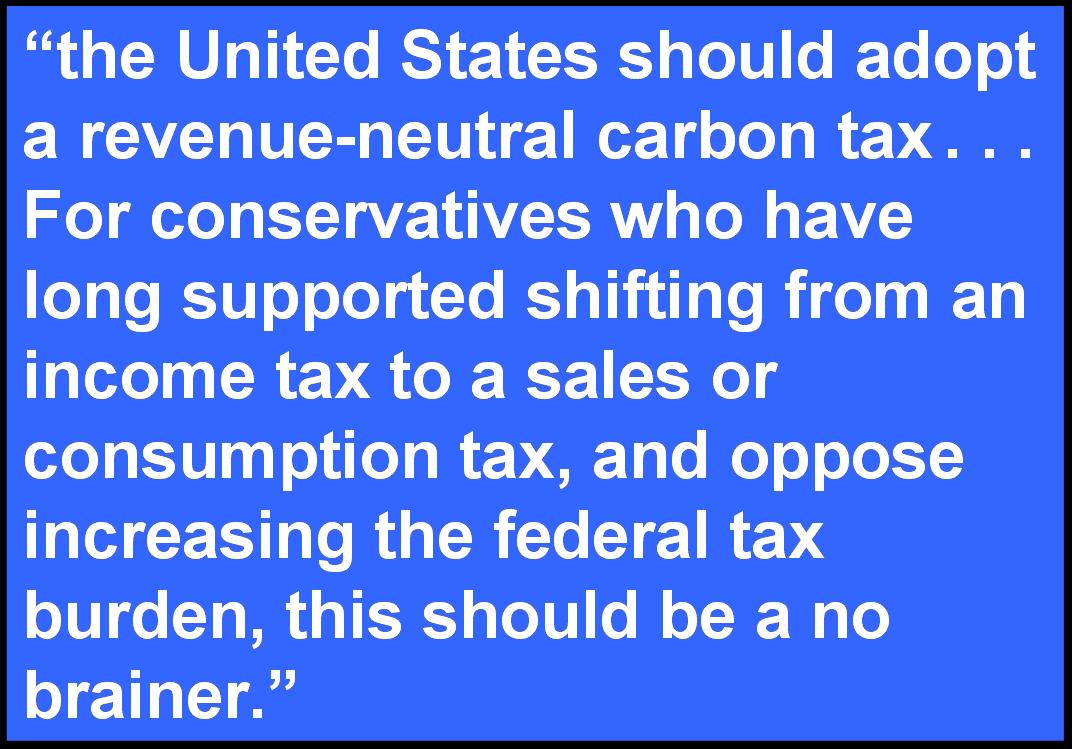 A conservative specialist in environmental law—Professor Jonathan Adler of Case Western Reserve University—lays out a thoughtful conservative approach to tackling climate change in a recent post at The Atlantic magazine.
A conservative specialist in environmental law—Professor Jonathan Adler of Case Western Reserve University—lays out a thoughtful conservative approach to tackling climate change in a recent post at The Atlantic magazine.
Climate hawk David Roberts (Grist) accurately describes Adler’s piece as “an eloquent, principled case for the simple notion that ‘embrace of limited government principles need not entail the denial of environmental claims.’”
 Adler suggests four policy changes to “make it cheaper and easier to adopt low-carbon technologies:” 1) prizes to spark innovation, 2) lower legal barriers to deployment, 3) a revenue-neutral carbon tax, and 4) adaptation.
Adler suggests four policy changes to “make it cheaper and easier to adopt low-carbon technologies:” 1) prizes to spark innovation, 2) lower legal barriers to deployment, 3) a revenue-neutral carbon tax, and 4) adaptation.
Roberts notes, and most scientists would agree, that Adler understates the scale and urgency of the problem, cause and solutions. And no doubt, Adler—like Peter Wehner, Bob Inglis and a few others—is an outlier among today’s conservative leaders, for whom denying climate change has become a litmus test.
 But Prof. Adler is clearly making, as he has for years, a serious attempt to grapple with the climate reality without abandoning conservative principles. Is there anything more important in climate politics today?
But Prof. Adler is clearly making, as he has for years, a serious attempt to grapple with the climate reality without abandoning conservative principles. Is there anything more important in climate politics today?
Adler’s short Atlantic article is worth reading in its entirety, as are some of his links below, for clues on how to speak effectively about climate to conservatives. Here's the gist of his argument:
First, he makes the case, for skeptics, that global warming is real (the links are Adler’s; bold emphasis is mine):
“Though my political leanings are most definitely right-of-center, and it would be convenient to believe otherwise, I believe there is sufficient evidence that global warming is a serious environmental concern. I have worked on this issue for twenty years, including a decade at the Competitive Enterprise Institute where I edited this book. I believe human activities have contributed to increases in greenhouse concentrations, and these increases can be expected to produce a gradual increase in global mean temperatures. While substantial uncertainties remain as to the precise consequences of this increase and consequent temperature rise, there is reason to believe many of the effects will be quite negative.
Then Adler pivots to an interesting moral/legal case for climate action based on property rights.
“This is of particular concern because these effects will be most severe in those nations that are both least able to adapt and least responsible for contributing to the concentration of greenhouse gases in the atmosphere.
It is a well established principle in the Anglo-American legal tradition that one does not have the right to use one’s own property in a manner that causes harm to one’s neighbor. . .
My argument is that the same general principles that lead libertarians and conservatives to call for greater protection of property rights should lead them to call for greater attention to the most likely effects of climate change.
Finally, Adler proposes four solutions, which, though no doubt insufficient, are creative and serious. Most interesting is his case for a carbon tax à la Hansen.
“I believe the United States should adopt a revenue-neutral carbon tax, much like that suggested by NASA’s James Hansen. . . [and] that is fully rebated to taxpayers on a per capita basis. This would, in effect, shift the incidence of federal taxes away from income and labor and onto energy consumption and offset some of the potential regressivity of a carbon tax. For conservatives who have long supported shifting from an income tax to a sales or consumption tax, and oppose increasing the federal tax burden, this should be a no brainer.“
Interesting, no? Isn’t this the debate—how to solve the problem in a manner compatible with one's values—that responsible leaders should be having? Adler’s piece is a good starting point for such a discussion—and offers at least a glimmer of hope for dialogue instead of a shouting match.































 Arguments
Arguments























 0
0  0
0






Comments